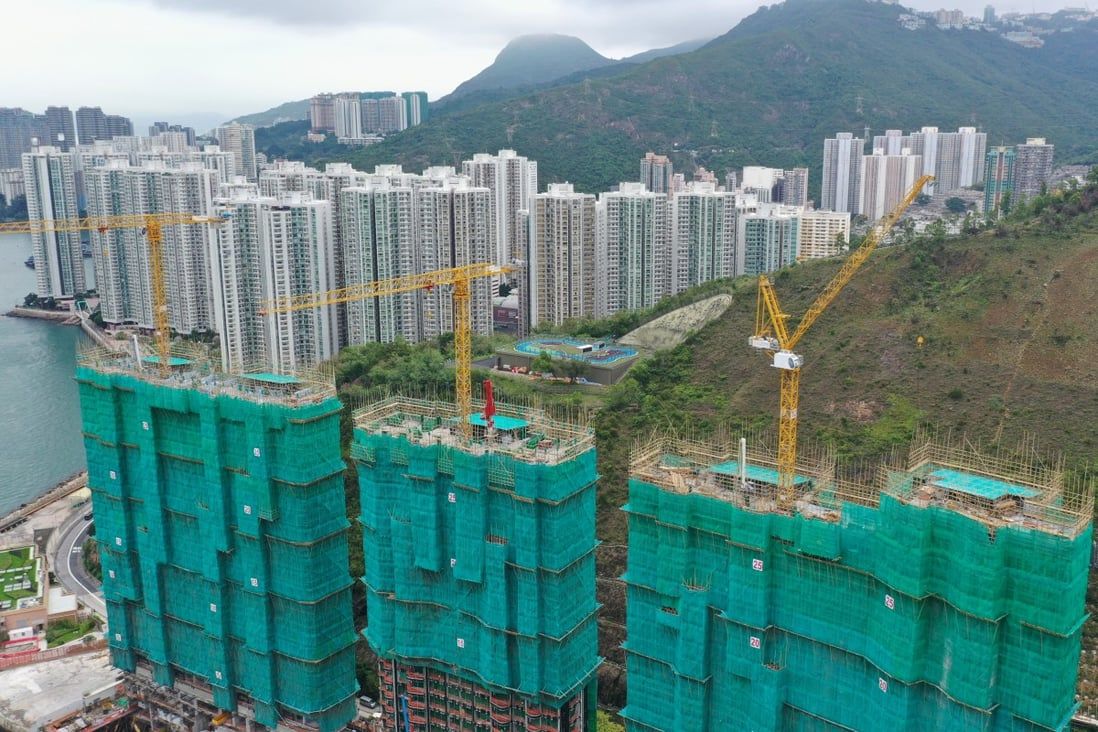Hong Kong News

Alarm bells in Hong Kong as Shenzhen to ‘pioneer’ China’s national tax reform
 No further details of time frame were provided by the Ministry of
Finance release on Monday, which was dated last Thursday, but it is seen
as part of a plan to improve Shenzhen’s fiscal system and debt
management.
No further details of time frame were provided by the Ministry of
Finance release on Monday, which was dated last Thursday, but it is seen
as part of a plan to improve Shenzhen’s fiscal system and debt
management.
China’s technology hub of Shenzhen has been encouraged to “pioneer” a pilot programme for national tax reform amid Beijing’s renewed push for innovation and common prosperity to tackle inequality.
No further details of the time frame were provided by the Ministry of Finance release on Monday, which was dated last Thursday, but it is viewed as part of a plan to improve the fiscal system and debt management in Shenzhen.
The city of 18 million is seen as China’s frontier of reform and opening, and any changes offer references for possible policy expansion to other regions in the future.
“[We’ll] support Shenzhen to focus on building a high ground for institutional innovation, actively undertaking major national tax reform and research, and continuing to be a vanguard and experimental field of reform,” said the Ministry of Finance.
The finance ministry also supported Shenzhen to leverage tax and fiscal policies to boost medical services, education and meet the high demand for property. Efforts to attract increased capital to boost innovation and research were also outlined in order to enhance its role in the Greater Bay Area.
China currently does not have either an inheritance or wealth tax, while a property tax plan has been discussed since last year as part of the common prosperity campaign.
President Xi Jinping declared in August 2021 that China will “actively and steadily push forward property tax legislation and reform” and carry out pilot programmes.
The development fuelled market speculation as it may have profound effect on the city’s property market and also affect around 25,000 Hong Kong workers living in Shenzhen, who make frequent cross-boundary trips.
But analysts expect broader changes in the future, including enlarging Shenzhen’s tax system, incentives for technological progress and cooperation in the Greater Bay Area, as well as a tax framework suitable for an increasingly digitised economy.
Cai Chang, a tax professor with the Central University of Finance and Economics in Beijing, said a property tax pilot could be one of the options despite the ongoing property downturn largely shelving plans for national legislation.
“Shenzhen’s property price is too high,” he said, with the average price of a new home comparable with the likes of Beijing and Shanghai after rising by 3.7 per cent month-on-month to 69,714 yuan (US$9,572) per square metre in September, according to property portal website Fang.
Property is a major form of household wealth in China and is a key area to tackle after Beijing elevated its common prosperity strategy during the recent 20th party congress.
Shenzhen, Cai added, shoulders a responsibility in the use of tax tools having been designated a pilot demonstration zone for socialism in 2019 by Xi.
“There are several hot areas for consideration, like the sales tax in Hainan province. Shenzhen could do it also. There could also be preferences for income tax, or technologies,” he added.
A sales tax in China’s island province of Hainan, known for its duty-free shopping, has not yet been introduced, but has been widely discussed.
Shenzhen was the first city to pilot using blockchain technology for tax invoices in 2018, while it introduced a 15 per cent income tax rate for qualified individuals and firms from overseas in the Qianhai economic zone in 2012.
“Shenzhen has room to provide bigger tax incentives to boost technologies,” said Tang Dajie, a guest researcher with Wuhan University’s research centre for fiscal policies, taxation and laws.
The finance ministry circular mentioned that tax policies will also be deliberated to facilitate technological cooperation between Shenzhen and Hong Kong in the Hetao innovation zone.
Located in the southern part of Futian District of Shenzhen and bordering Hong Kong, the Hetao Shenzhen-Hong Kong Innovation and Technology Cooperation Zone is focused on implementing measures conducive to the flow of talent, scientific research resources and business development.
China also needs to build a local tax system given the rising debt problem and shrinking revenues from land sales, Tang added, while also increasing the proportion of direct taxes and further reducing the burden on manufacturers.
China should also lower the highest-tier rate of valued added tax of 13 per cent to closer to 10 per cent, he added.
The tax discussions come as China has turned to its domestic market and technologies to drive up its economic growth, but years of battling the coronavirus pandemic, with accumulated tax cuts alone surpassing 5 trillion yuan (US$686 billion) in the past three years, have greatly weakened its fiscal capability.
Beijing still needs the tax tools to tackle new issues including technological development and inequality, both of which were outlined as two high priorities in the recently released 20th party congress report.
Former National Bureau of Statistics chief Ning Jizhe, in an article explaining the new development guidelines from the 20th party congress, said that China should optimise the structure of the progressive personal income tax, enhance the levy of consumption taxes, steadily move forward property tax legislation and reform and explore a tax system in line with the development of digital economy.
“We need to improve the local tax system, increase the proportion of direct taxes, and enhance the role of taxes in adjusting income distribution,” he said.











